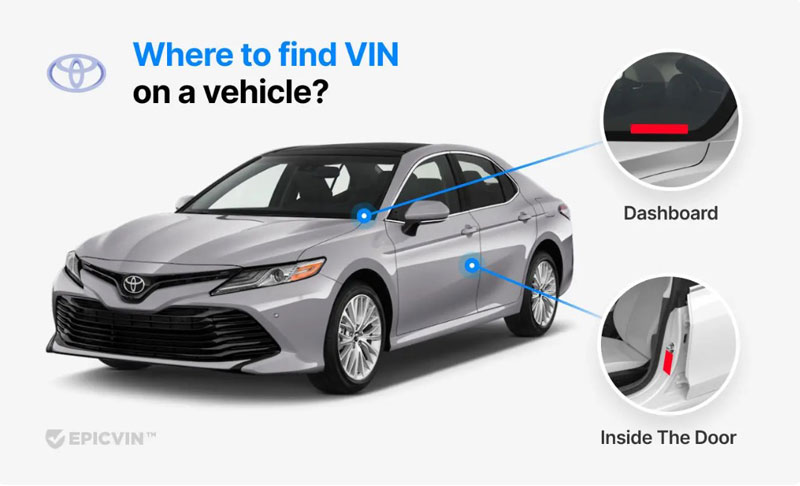Ever felt the wind of change blowing your way? For Toyota, that wind is electric and autonomous. As one of the world’s leading automobile manufacturers, Toyota is at the forefront of reshaping the automotive landscape. Let’s take a cruise down this exciting road.
Introduction to Toyota’s Vision
Dive into the world of Toyota—a name that effortlessly evokes visions of cutting-edge innovation, unparalleled quality, and decades of automotive excellence. But where does the trailblazing path of this automotive titan lead us next? Picture a not-so-distant future where sleek electric cars don’t just cruise our streets, but redefine them. Envision a world where the harmony of man and machine reaches its zenith, and autonomous vehicles elegantly whisk us away, rendering traditional driving as an evocative, nostalgic art. With Toyota steering this magnificent journey, we aren’t just passengers, but pioneers of an electrifying, eco-conscious future. Get ready, the automotive renaissance, led by Toyota, awaits!
Toyota VIN Decoder: What It Is and How to Use It
Ever stumbled upon a series of numbers and letters on your Toyota and wondered, “What does this mean?” That, my friend, is the Vehicle Identification Number (VIN). And with the Toyota VIN decoder you can unlock a treasure trove of information about your vehicle. Manufacturing date, place, model, and even recalls – it’s like your car’s biography in code!
The Electric Shift
As governments and consumers increasingly gravitate towards sustainability, electric vehicles have emerged as the golden child of the automotive industry. Toyota, a pioneer with its Prius hybrid back in 1997, is amping up its efforts in the EV realm.
By 2025, Toyota aims to introduce 70 new electric models, with at least 15 of them being fully electric. The bZ4X concept is already generating buzz, promising an alluring blend of style, performance, and a range that rivals current internal combustion engines. This marks the beginning of Toyota’s expansive journey towards a greener, cleaner future.
The Autonomy Ascent
Beyond electric, the landscape of automotive technology is becoming increasingly intelligent. Autonomous or self-driving cars have moved from the pages of science fiction novels to real-world testing, and Toyota is not a mere spectator. Through its investment arm, Toyota AI Ventures, and collaboration with other tech leaders, the company is deeply engaged in perfecting autonomous technologies.
The ambitious Woven City project—a living lab being built in Japan—is expected to become a testbed for various Toyota technologies, including autonomous vehicles. Covering a 175-acre site, this city of the future will help Toyota refine its self-driving tech in real-world conditions, making the dream of cars that drive themselves closer to reality.
Hydrogen Fuel Cells: The Other Green Giant
While battery electric vehicles receive much of the limelight, Toyota is also making serious strides in hydrogen fuel cell technology. The Toyota Mirai, a hydrogen fuel cell car, emits nothing but water vapor, offering a unique blend of eco-friendly technology and luxury.
Hydrogen holds the promise of quicker refueling and lighter vehicles compared to battery electric cars. By investing in both, Toyota ensures it is not putting all its sustainable eggs in one basket, preparing for a future where different technologies can coexist.
Mobility for All: More Than Cars
Toyota’s vision extends beyond personal cars to encompass various forms of mobility. The e-Palette concept vehicle, which debuted at CES 2018, exemplifies this by serving as a multi-purpose moving space. Whether it’s for ride-sharing, mobile retail, or healthcare on-the-go, e-Palette promises to be a game-changer.
The Electric Evolution
What drives the accelerating transition to electric vehicles (EVs) in the automotive sector?
The shift isn’t merely a trend, but rather an evidence-based response to a series of compelling factors. Electric vehicles demonstrate a heightened efficiency in energy utilization compared to their internal combustion engine (ICE) counterparts, thereby reducing overall operational costs. This is particularly critical in light of the escalating prices of fossil fuels, a finite resource subject to market volatility.
From an environmental perspective, EVs significantly mitigate the emission of greenhouse gases and other pollutants, aligning with increasingly stringent global emission standards. Moreover, electric vehicles, enabled by advancements in battery technology, offer the potential for improved vehicle performance, characterized by smoother acceleration and quieter operation.
However, the transition is not solely contingent upon consumer preferences or regulatory pressures. Advances in electrical engineering, power storage, and charging infrastructure have made electric vehicles an increasingly viable alternative. This transformation, therefore, represents a congruent evolution in both consumer demand and technological capability, making the shift to electric vehicles a rational and imminent development in automotive engineering.
Toyota’s Electric Models in the Pipeline
Heard of the Toyota bZ4X? It’s Toyota’s venture into the fully electric SUV segment. But that’s just the tip of the iceberg. Toyota has plans to roll out around 70 electrified models by 2025. From hybrids to full-electrics, they’re charging ahead with vigor.
The Journey to Autonomous Driving
Stages of Automation
Autonomous driving isn’t just an on/off switch. It’s a journey. From basic automation, like cruise control, to fully autonomous vehicles that need zero human intervention. Where are we on that journey, and more importantly, where is Toyota?
Toyota’s Contribution to Autonomous Tech
Toyota isn’t just sitting back and watching the show. They’re active players. With their Woven City project, a prototype city in Japan, Toyota is testing its autonomous tech in real-life scenarios. Think about it – a whole city where self-driving cars interact with humans and other vehicles seamlessly!
Beyond Cars: Toyota’s Broader Ambitions
Toyota isn’t stopping at cars. Their vision extends to building a sustainable future for all. With initiatives like the Toyota Environmental Challenge 2050, they aim to reduce the carbon footprint significantly across all their operations.
The Road Ahead for Toyota
The future looks bright and electric for Toyota. With their eyes set firmly on sustainable mobility and advancing automation, they’re gearing up for a future where cars are more than just vehicles. They’re partners in our daily lives.
Conclusion
Toyota’s journey is emblematic of the broader shifts in the automotive world. From electric dreams to self-driving realities, they’re at the vanguard of change. As consumers and enthusiasts, all we can do is fasten our seatbelts and enjoy the ride. Who knows what the next turn holds?
FAQs:
- What is Toyota’s stance on electric vehicles?
Toyota is heavily investing in electric vehicles, aiming to release around 70 electrified models by 2025.
- How advanced is Toyota in the autonomous driving sector?
Toyota is actively testing its autonomous tech in real-life scenarios, notably in its prototype Woven City in Japan.
- What is the Toyota VIN decoder?
It’s a tool that allows you to decode the Vehicle Identification Number of your Toyota car, revealing details like its manufacturing date, model, and more.
- Are electric vehicles really the future for Toyota?
Yes, considering global shifts towards sustainability and tighter emission norms, electric vehicles are a significant part of Toyota’s future.
- Will Toyota’s cars become fully autonomous?
Toyota is working towards that future. While it might take time, advancements in tech and infrastructure make it a plausible reality.


0 Comments